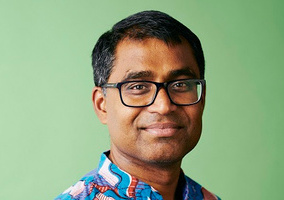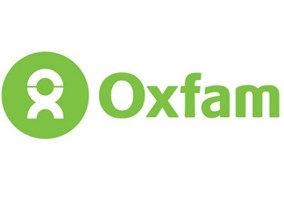Oxfam recently updated its inclusive language guide. It apologised for using English, “the language of a colonising nation”, and suggested alternatives to a number of widely used phrases – for example saying “human beings” instead of “mankind” as the latter has an inherent association with maleness.
A tranche of press and commenters expressed outrage – accusing the charity of “wokery” and saying its guide was “beyond parody”.
Conservative MP Robert Buckland was reported in the Daily Mail as saying: “Most people will find this particular use of valuable time and resources by Oxfam totally bizarre. It would do them well to remember the old adage that actions speak louder than words.”
Oxfam has defended its guide and many other responses, including those from within the charity sector, have been more positive. But even those defending Oxfam from unfair attacks might question whether is right to invest resources on these sorts of guides. Aren’t they meant to be stopping poverty instead?
Does language really matter?
The point on language and its importance has two key aspects. One is on whether making changes erases certain identities – which seems to be what some readers were concerned with – and the second is about why language holds power.
Taken out of context, some of the points the guide makes can seem a bit silly. For example, not using the term “field trip” to avoid reinforcing a colonial attitude. But actually, on reading the guide, for Oxfam, this makes sense. And, as the charity has emphasised, it’s not meant to be prescriptive.
“In Oxfam’s context, the phrase ‘field trip’ was previously used to describe visits to lower-income countries, whereas a trip to New York, for example, would not be considered a ‘field visit’. By using this kind of language we reinforce colonial attitudes that are contrary to the values and aims of our organisation,” it states.
This shows that language can have different importance in certain structures (for example, in international charities). Words have the power to alter meaning, evoke empathy, cause deep hurt, and in this context, help to dismantle colonialism and promote equality.
“At the very least, we must ensure that our language does not imply concepts that are patronising or reinforce stereotypes about the people we work with. At best, we can use language to actively challenge structures that marginalise people or groups in order to support them to exercise their rights,” the guide reads.
Oxfam chief executive Danny Sriskandarajah has been vocal about his focus on preventing potential abuse by reducing power imbalances in Oxfam’s services, and language is a tool to do so.
On the second point around erasure, some commentators expressed concern about a supposed cancellation of the term “mother”.
Some articles misled readers by suggesting that Oxfam was telling staff not to use the terms “mother” and “father” – which is not exactly what its guide says. Oxfam’s guide advocates for certain language when parents are trans or non-binary, but does not say staff should not use the terms “mother” of “father”. It suggests using the term “parent” if they are unsure.
The charity was also criticised for suggesting terms such as “pregnant women” and “people who become pregnant” rather than using the term “expectant mothers”.
One reason it gave was that “expectant mothers” reinforces gender stereotypes, but also because it assumes that the woman in question wants to continue the pregnancy or will carry the pregnancy to term.
The guide states: “‘Pregnant women’ is a more neutral, less loaded term. To be more inclusive of gender non-binary, trans men, or gender non-conforming people, the term ‘pregnant people’ or ‘people who can become pregnant’ can also be used.”
Therefore, the guide advocates for respecting a person’s choice, using the terms “mother” and “father” where wanted, and suggests staff choose their language carefully in the context of pregnancy – which is important for a number of reasons, during what can be a sensitive and personal experience.
Should Oxfam be spending resources on an inclusivity guide?
Sriskandarajah addressed the second point around spend in a piece for the Guardian responding to the backlash to the guide.
“These concerns are built on the assumption that fighting poverty simply involves delivering things, such as food or money, directly to beneficiaries with few or no overheads. Any bureaucracy to manage or improve the work of the charity (such as this guide, or indeed any paid staff) is then considered wasteful.”
Sriskandarajah said aid charities should be clear that systemic change needs campaigning. He said talking about the importance of decolonising aid or about trans-inclusion “may not feel popular, for now at least, but it will help us to transform the development sector into something more fit-for-purpose in the 21st century”.
Indeed, the development sector needs change. Anti-racism should be a key focus of all organisations, and language is one facet of this.
For example, Oxfam’s guide suggests not using the terms third world, first world, developing countries or developed countries and instead using ‘Global South’ and ‘Global North’. The reason being, that they help discern majority Black, indigenous, and people of colour countries from rich, mainly white countries that colonised them.
Nonetheless, it notes: “They’re imperfect terms due to geography (e.g. Australia is in the Global South), and how they overlook the differences in contexts and cultures.”
Language is important, and Oxfam was right to update its guide. Nonetheless, this work should not be siloed, and it is just one aspect of much needed work at the organisation.
It would be “virtue signalling” if Oxfam only did this – but as just one aspect of its wider work to decolonise and prevent safeguarding issues, the guide plays a crucial role.
Related Articles












